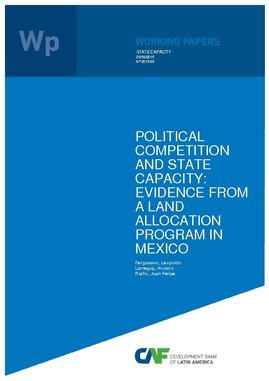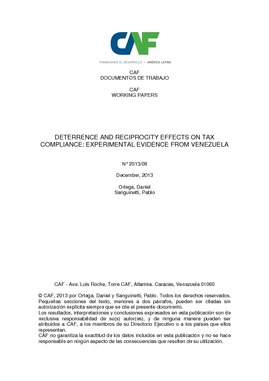Can a Mining Windfall Improve Welfare? Evidence from Peru with Municipal Level Data
Abstract
In this paper we investigate whether fiscal performance is affected by the presence of natural resource revenues. We compare policy outcomes from mineral-abundant municipalities and non mineral-abundant municipalities in Peru, before and after the mining windfall. We use a difference in difference approach with municipal-level data, profiting from the exogeneity of mining canon transfers. Our findings are not consistent with a significant difference in terms of public goods provisioning between canon recipient governments and non-recipient governments. We do not find that citizen participation in public governance alter these results. Mineral rich regions do not seem to be reaping the benefit of the windfall.
Subject
Country / Region
Date
2012Cite this publication
Belongs to collection
Author
Arreaza, AdrianaReuter, Alexandra
Items Relacionados
The Anatomy of Colombian Bureaucratic Hierarchies
The effective deployment of the bureaucracy is fundamental to government performance and economic development. We study the organizational architecture ...
Political constraints and state capacity: Evidence from a land allocation program in Mexico
In this paper we contribute to the understanding of the politics of state building. We emphasize that incumbent clientelistic parties might have incentives ...
Deterrence and reciprocity effects on tax compliance: experimental evidence from Venezuela
A recent debate on tax compliance asks whether enforcement mechanisms can be complemented, or even substituted by appeals to the taxpayer’s tax morality: ...






